I spent three months travelling around Morocco in a campervan. Here is how it changed my views on Western culture.

Emily Draper has joined the team as our first ‘Patchie Correspondent’. She is a travel writer who bounces around the world while she writes; and now has visited over 80 countries since setting out many years ago.
When the idea of driving solo (as a female) in my campervan around Morocco for three months came to me, I wasn’t surprised by my friends and family’s reaction. Loaded questions like “Isn’t it dangerous?” rang through my ears repeatedly. One friend even said “What would you want to do that for?”, as if there was no possibility of the idea being fruitful. Yet, not one of them had ever visited. It seemed as though their perception of Morocco was built upon their fears of such a vastly different and unfamiliar culture. Although I didn’t want to admit it, I quietly feared it too. And that’s exactly why I went.
Taking a romantic’s approach to travel
The truth is, that like many other countries our Patchies travel to (including Iran and Egypt), Morocco’s political and social differences make it seem like a difficult and even dangerous place to be as a Western foreigner. After all, everything from their customs and values to their tone of voice and body language is unfamiliar, and interpreting it all can be understandably intimidating.
It’s only natural for us to put up our shields and be cautious of these differences, and even write them off as ‘impenetrable’. However, I believe that, despite each country’s differences, there are always commonalities to be found on an individual level. Isn’t that the beauty of travelling to foreign places with unfamiliar cultures? To share in our differences and find that we aren’t so different after all? Maybe my views of the world were too romantic but this, to me, was the appeal of such an alien country.
Did I make the right decision?
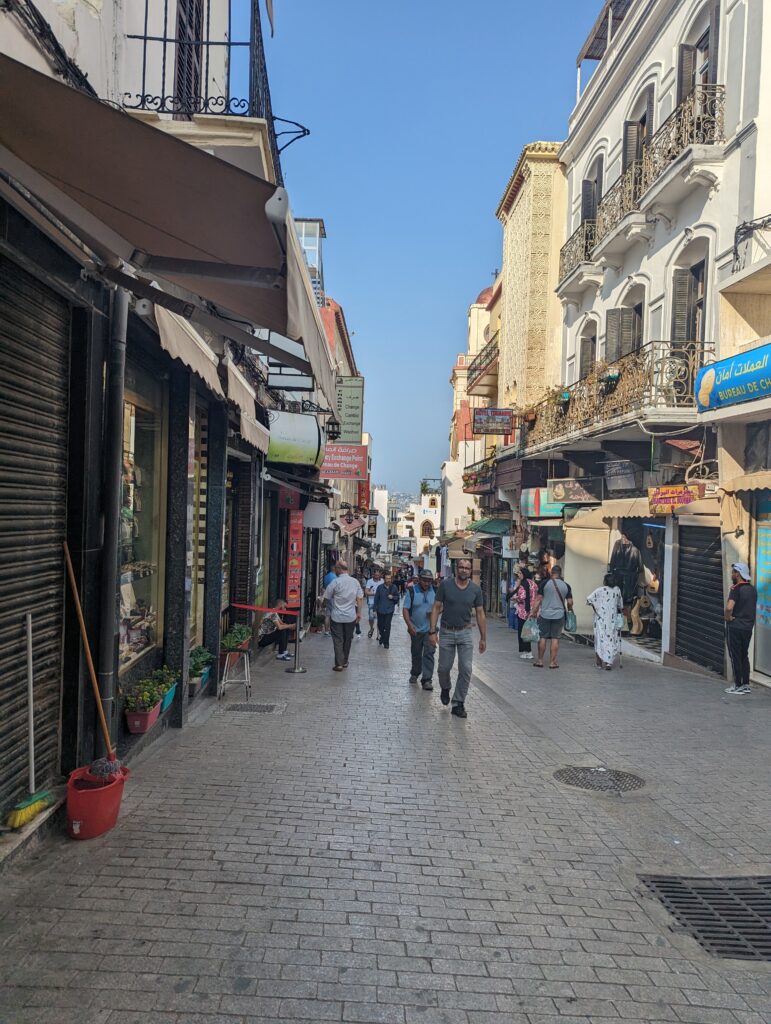
As soon as I rolled off the ferry from Spain to Tangier, I felt immediately intimidated. I was a small 29-year-old white woman alone in a sea of brown-skinned men. Women aren’t usually seen out alone in Morocco, especially not white ones, and so it wasn’t long before I started attracting attention. People stared at me, said hello, and tried to pin me with conversations about my origin as I walked through the lanes of Tangier Medina. An hour in, now looking like a lost and panicked black sheep, a part of me wondered if I had made a mistake in coming here. Yet, I had no intention of turning back.
Becoming somewhat of a celebrity
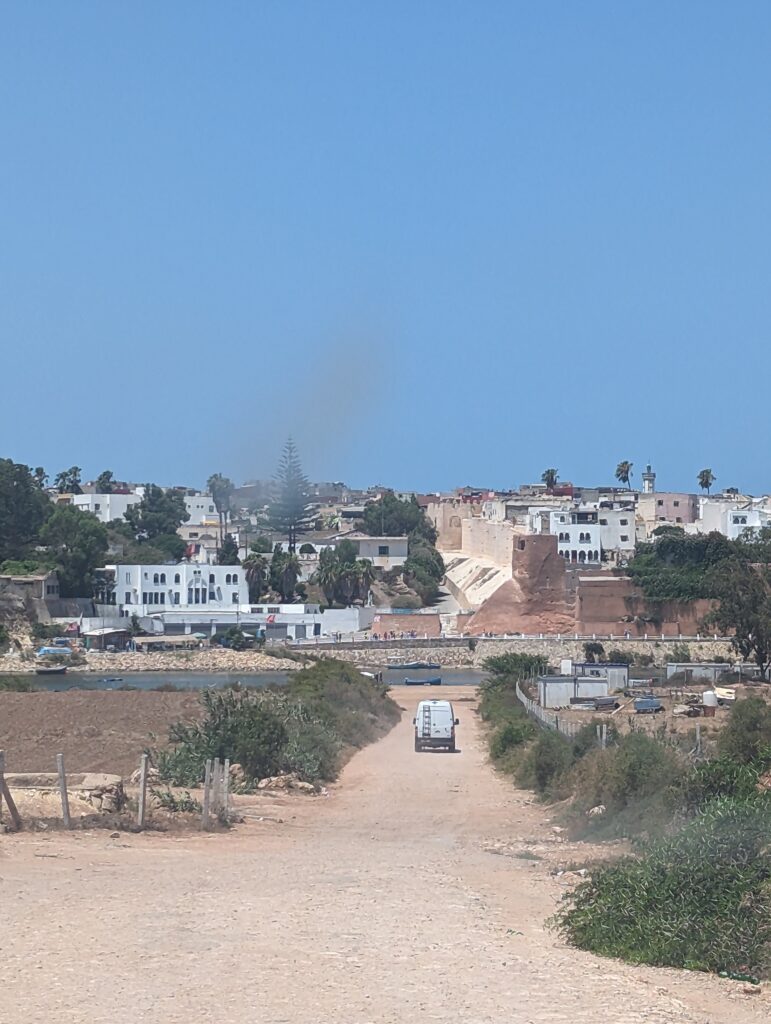
As I began driving across Morocco’s argon tree landscapes, people would point, wave, and even jump for my attention at the roadside to say hello to the white woman driving the big British campervan. That’s when I realised that the behaviour I initially pegged as pushy, too-forward, and (if I’m honest) a little creepy, was often most likely to be nothing more than excitement and curiosity to see someone different from themselves.
The more time I spent in Morocco, the less I felt like a black sheep and the more I felt like somewhat of a celebrity. From the cool coastal surf towns to the Atlas Mountain villages, people continued to approach me with just as much vigour as they had on my first day in Tangier Medina. But now, instead of putting my hand up as a sign to ‘stay back’ as I darted my eyes to the ground and shuffled swiftly past, I would greet them, shake their hand, and often stop to chat. In doing so, I learned so much about Morocco that I would have otherwise missed out on and, what’s more, I learned so much about myself as a Westerner.
Loving thy neighbour
Most surprisingly of all, I learned that, despite my efforts to engage, I couldn’t help but feel reserved and fearful of a stranger’s approach. I found myself instinctively wondering about their ‘real’ motive. In the West, you would run the other way if a stranger said hello to you in the street and (god forbid) tried to converse. And if someone handed you a drink that you didn’t see being poured? Forget it!
In Morocco, these acts were, as a rule, nothing more than random kindness and generosity. I learned this from a friendly Moroccan man that I got chatting with on the deserted streets of Asilah during Eid al-Adha, the country’s biggest holiday. He told me that Muslims celebrate this holiday by sacrificing a sheep and sharing the meat with those less fortunate than them. It was a reminder that we are all neighbours on this Earth, and neighbours give without expecting to receive.

Although this notion made me feel hopeful in a world that is often too clouded by greed and self-righteousness, I also felt a lot of shame. There I was fearing a Moroccan’s approach, yet I was the one that came looking for a deeper connection with humanity when my own faith in humanity had disappeared.
Down with hyper-individualism
While my first hour in Morocco seemed like one of the longest in my life, the proceeding three months seemed to fly by all too fast as I surfed with locals in Sidi Kaouki, made bowls with a ceramicist in Safi, and drank many cups of mint tea with the locals along the way. These were just a few incredible moments I had that wouldn’t have happened if I didn’t open my heart and mind to Moroccans, despite my fears. Who knew that I would come to know them as some of the kindest, most generous, and most community-oriented people I have ever met?
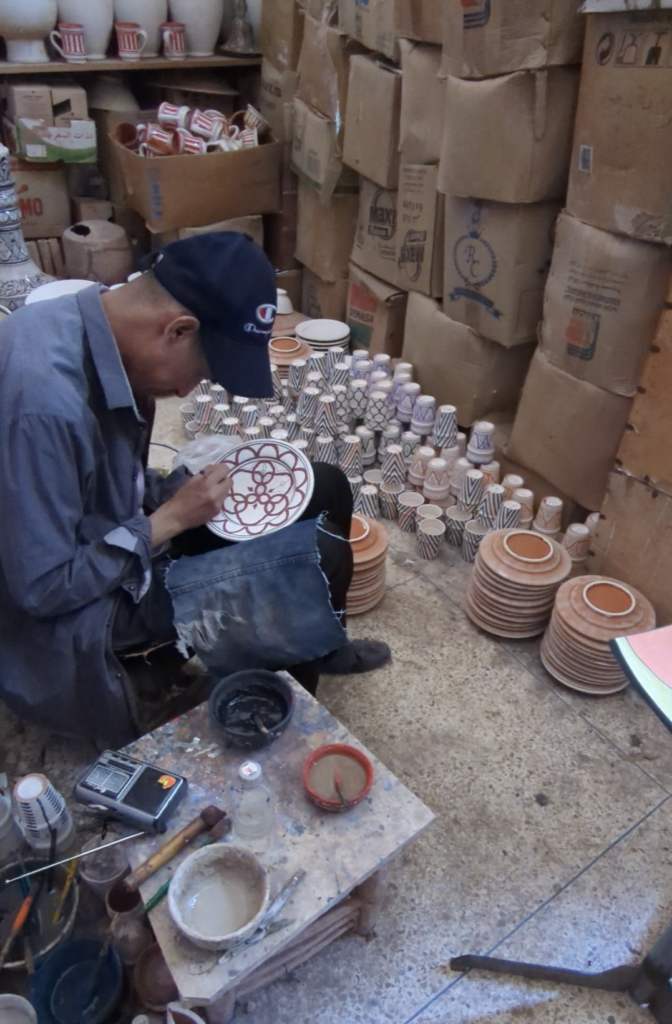
When was your last selfless act of kindness?
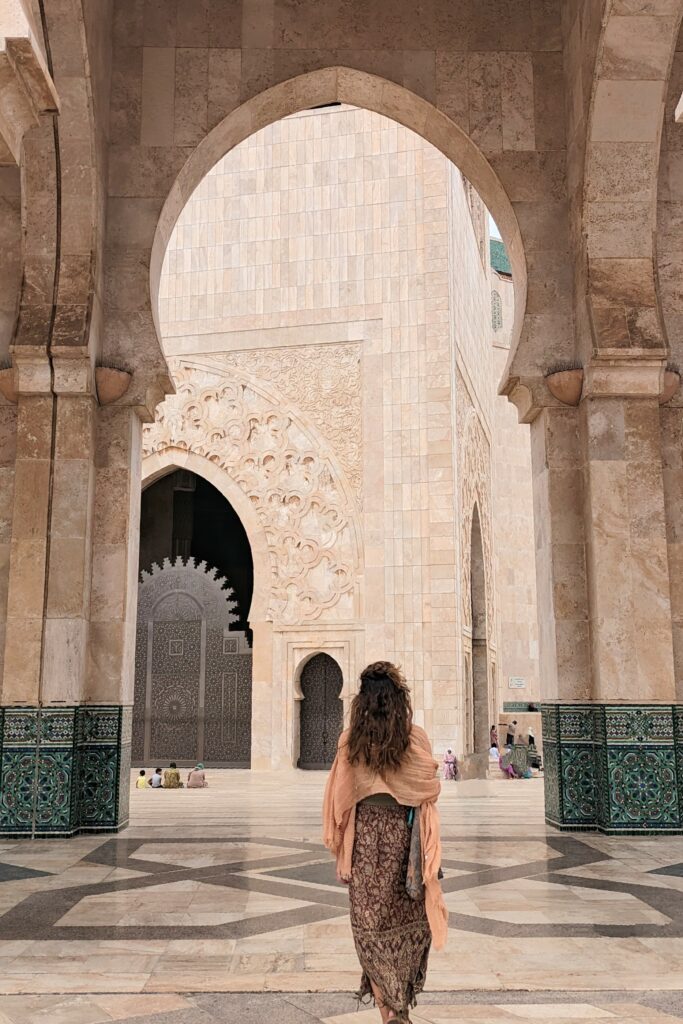
Looking back on my life in Western Europe, I couldn’t remember the last time I was offered a stranger’s time, skills, or food without asking or the last time I offered it out to others. Our incessant drive for independence and hyper-individualism has taken priority over our drive for kindness, generosity, and community. Whilst this has allowed the West to flourish in many ways, it also isolated us by teaching people to fear their neighbour instead of sharing with them. If we turned this around and treated strangers like neighbours, I imagine we would all feel a little less lonely and anxious. At least, it was the case for me. The once-frightened black sheep on her first day in Morocco became a confident and content traveller by her last.
Find out what awaits beyond your fears
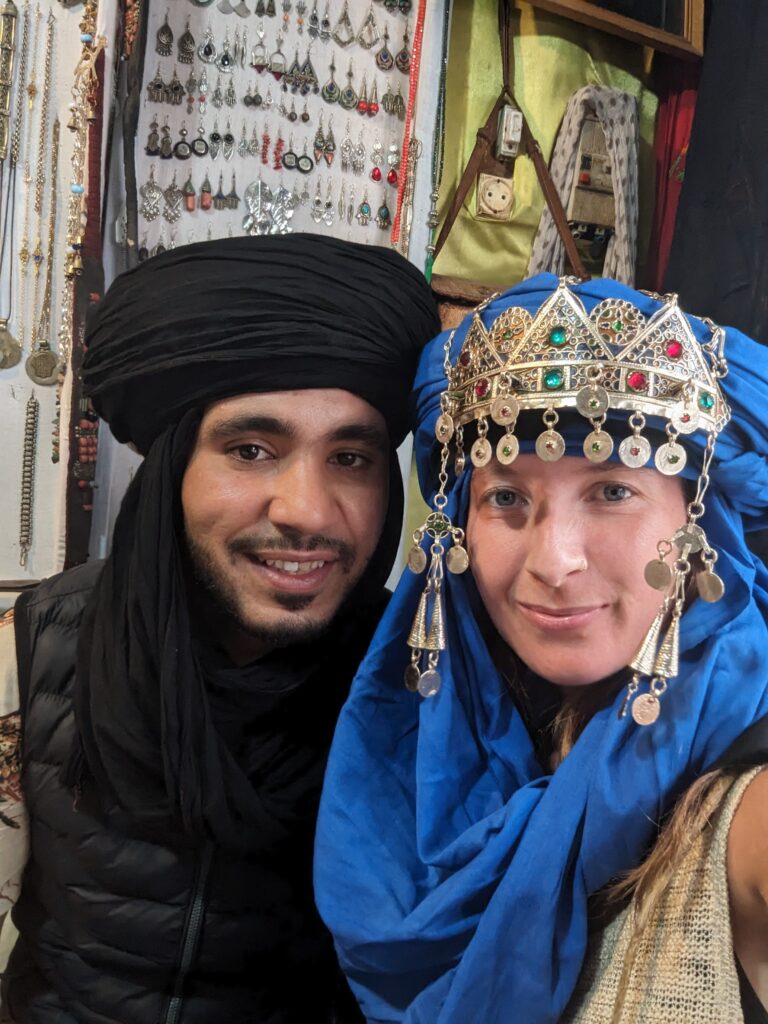
It was to my surprise, and admittedly some embarrassment, that my preconceived notions about Morocco’s safety as a Western female were shattered so shortly after arriving. That said, I wish I could tell the lost black sheep in the Tangier Medina that she had nothing to fear once she swam with the tide. It would have allowed her to feel more excited about the trip than fearful. But since I can’t, I will tell you instead. Erase your perceptions, swim with the tide, and stay curious about unfamiliar cultures. You won’t believe how much it can enrich your trip.